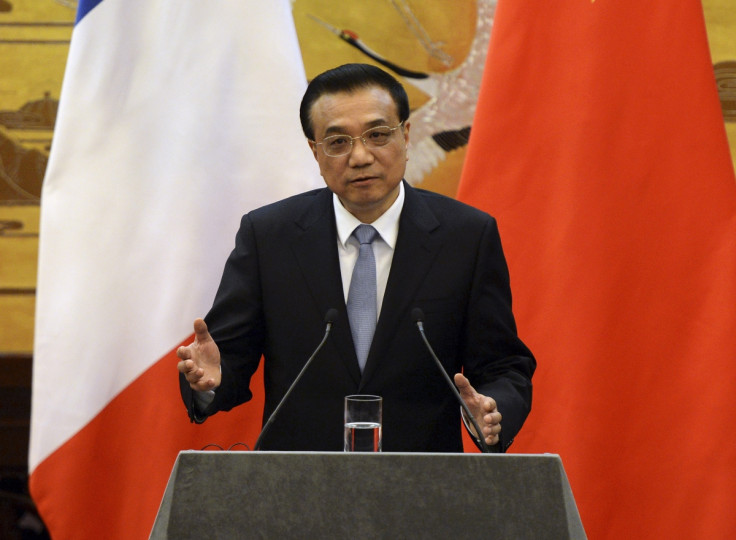China: Li Keqiang Promises 'Appropriate Liquidity' for Financial System in 2014 Despite Tighter Credit Conditions

Chinese Premier Li Keqiang pledged to maintain "appropriate liquidity" in his country's financial system during 2014 in order to keep the economy stable.
His comments follow two bouts of tight credit conditions in the Asian powerhouse, when banks were unable to cope with sudden increased demand for finance in both June and December.
China's central bank did not intervene at the time by pumping cash into the system, which some have taken as a tightening of monetary policy in order to encourage financial institutions to deleverage and restrict house price growth.
"We will stick to the prudent monetary policy, keep appropriate liquidity, realise reasonable growth in credit and total social financing and keep prices largely stable," said Li Keqiang, suggesting the tightening will continue.
"We have the conditions to keep the economy operating in a steady style and maintain the stability of the financial markets."
Li Keqiang made the comments during a tour of the northern Chinese city Tianjin, reported Reuters.
China is undergoing a number of economic reforms to improve the quality of the country's GDP growth.
Its government is cracking down on corporate corruption and bribery. There have been a number of high profile arrests and court cases, such as those involving executives at Glaxosmithkline in the pharmaceutical sector.
It is also rooting out misreporting of economic data by officials. China's National Bureau of Statistics (NBS) claims the local Luliang government in southwestern Yunnan province put pressure on companies under its jurisdiction to inflate their industrial output data.
NBS officials said 28 local companies reported 6.34bn yuan (£664m, €789m, $1bn) in industrial output value during 2012, but the true figure was only 2.82bn yuan.
The firms involved shifted blame up to the authorities. They said reported data would be returned if Luliang officials did not think it was high enough, leaving companies little choice but to artificially bloat the numbers.
In November, the Chinese government unveiled sweeping economic and social reforms as it seeks to improve on the quality of the country's growth.
According to a document released by the Communist Party at the end of a four-day conclave of its top leaders, China said it plans to cut red tape by scrapping residency restrictions in small cities and townships, while also integrating urban and rural social security systems.
This includes the establishment of an exchange market for rural property rights transfers.
The country also pledged to accelerate capital account convertibility and push ahead with an environmental tax.
Among other economic reforms, China plans to set up a debt risk alert mechanism as well as standardising the way local and central government debt is managed.
Standard Chartered Bank forecasts China's economy to become the biggest in the world by 2022, while the Centre for Economics and Business Research forecasts it to overtake the US for the top spot in 2028.
© Copyright IBTimes 2025. All rights reserved.






















